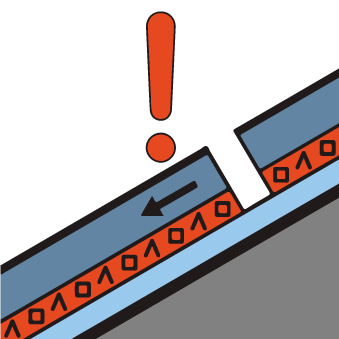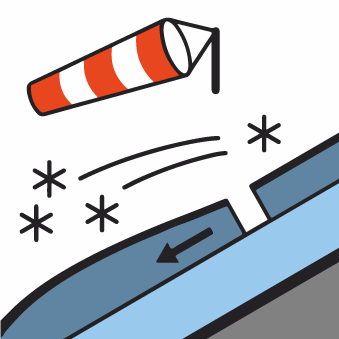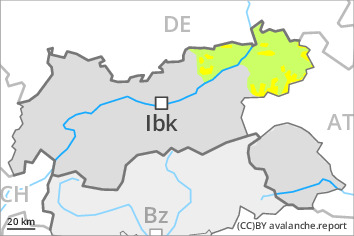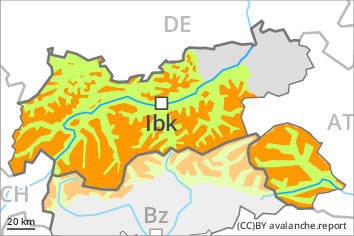
Danger level
 | 1800m |
| 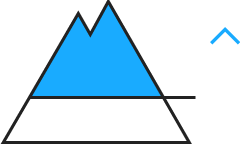 |
|  | ||||
|  |
|  |

The avalanche conditions remain unfavourable. Caution and restraint are advisable.
Weak layers in the old snowpack can be released easily. The avalanche prone locations are to be found in all aspects above the tree line, also in areas close to the tree line. The avalanche prone locations are quite prevalent and are barely recognisable, even to the trained eye. In some cases the avalanches are large, in particular in the regions with a lot of snow in the north. At transitions from a shallow to a deep snowpack, when entering gullies and bowls for example the likelihood of avalanches being released is greater. Remotely triggered avalanches are possible in isolated cases.
The somewhat older wind slabs can be released in some cases on west to north to east facing aspects.
Below approximately 2200 m medium-sized gliding avalanches are possible, in particular in the regions with a lot of snow.
Snowpack
dp.1: deep persistent weak layer
dp.6: cold, loose snow and wind
The snowpack will be prone to triggering. Distinct weak layers exist in the old snowpack in all aspects, especially on steep shady slopes above the tree line, and in areas close to the tree line, this also applies on steep sunny slopes above approximately 2300 m.
Stability tests and field observations confirm the unfavourable bonding of the snowpack.
Tendency
Friday: The snowpack remains prone to triggering. Backcountry touring and other off-piste activities call for caution and restraint.
